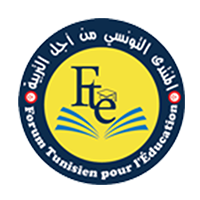The Prospects of Adopting an Open Pedagogy: An Exploratory Study of Teachers of English in Higher Education Institutions in Tunisia.
Online learning opportunities have become increasingly available and easily accessible by learners and teachers alike. It has also become possible to access, download, copy, paste, edit, mix, remix and share documents and software at no cost thanks to the Open Educational Resource (OER) movement which gained momentum at the turn of the 21st century. OERs are teaching and learning materials (e-books), software, podcasts, interactive games, tests and quizzes, slides and class presentations found on an institution’s repository among others, which may freely be used and reused subject to copyright licensing rules outlined by Creative Commons. While these resources are seemingly readily available and easy to use, teachers in the humanities often do not go as far as creating their own OERs. At best they download and share with students. Thus, any prospective institutionalised adoption and integration of OERs in education can be challenging for teachers not versed in the technicalities associated with the practice of OER use. Indeed, teachers are not always aware that such resources exist except for the few who are technology savvy. Thus, this study seeks to engage with interest at the top level of Tunisian Higher Education circles in promoting the use of OERs in teaching as gleaned from a document developed in 2016, entitled “Open Educational Resources Framework published by the International Organization of La Francophonie (IOF)”. The idea of the study is to tease out whether and to what extent higher education teachers of English are aware of OERs and whether and to what extent they are likely to engage in OER-enhanced practice. A sequential mixed methods design is used. First, teachers in different higher education institutions respond to an online questionnaire to find out whether they are aware of the OER features, principles of use and their perception of the possible adoption of an OER-enhanced pedagogy for teaching English. Second, teachers who indicated willingness to take part in a semi-structured interview (SSI) are asked about their specific teaching context, more personalized concerns and their assessment of their institution’s learning/teaching environment and how amenable they find it to the introduction of such an innovative idea. The thematic analysis helps pin down the teachers’ concerns, perceptions of the obstacles related to mastering OER-specific technological skills. Teachers indicate they are open to change but dread the transition. The study is limited in scope and exploratory in nature. As such it can only present a preliminary diagnosis. It is a starting point from which a call for action can be made. The research shows there is need to support teachers, and therefore, the obvious course of action is to construct training modules around the competencies and descriptors outlined in the Open Educational Resources Framework, proposed by the International Organization of La Francophonie (IOF). Since these competencies have been warranted by Tunisian educational decision-makers and experts, this step can be a plausible one which may serve as spring board for future action.

 Le Forum mondial sur l’éducation, tenu en mai 2015 à Incheon sous l’égide de l’UNESCO et ses partenaires, s’est conclu par la Déclaration d’Incheon pour l’Éducation 2030, un engagement historique de transformer la vie grâce à une nouvelle vision de l’éducation et à des actions courageuses et innovantes pour la réaliser. Le Cadre d’action Éducation 2030, qui établit cette nouvelle vision de l’éducation pour les 15 années à venir, a été adopté par plus de 180 états membres de l’UNESCO. Quatre ans plus tard, à la 9e Réunion mondiale de la Consultation collective des ONG pour Éducation 2030 (CCONG-Éducation 2030), qui s’est tenue en Tunisie en 2019, les organisations participantes ont affirmé que le monde est confronté à une crise éducative, causée par un manque de volonté politique, une faible priorisation de l’éducation et un financement insuffisant. De plus, elles ont constaté une tendance croissante à la commercialisation de l’éducation, ce qui contribue à creuser davantage les inégalités. Les systèmes éducatifs mondiaux ne semblaient pas respecter l’engagement pris dans le programme Éducation 2030. Le ministre de l’Éducation de la Tunisie d’alors avait, à la même occasion, souligné que la plupart des pays n’avancent pas suffisamment pour atteindre les objectifs fixés pour 2030. Il a appelé à une reconnaissance de l’importance stratégique de l’éducation pour toutes les nations et a encouragé la société civile à jouer un rôle majeur dans la mobilisation pour y parvenir.
Le Forum mondial sur l’éducation, tenu en mai 2015 à Incheon sous l’égide de l’UNESCO et ses partenaires, s’est conclu par la Déclaration d’Incheon pour l’Éducation 2030, un engagement historique de transformer la vie grâce à une nouvelle vision de l’éducation et à des actions courageuses et innovantes pour la réaliser. Le Cadre d’action Éducation 2030, qui établit cette nouvelle vision de l’éducation pour les 15 années à venir, a été adopté par plus de 180 états membres de l’UNESCO. Quatre ans plus tard, à la 9e Réunion mondiale de la Consultation collective des ONG pour Éducation 2030 (CCONG-Éducation 2030), qui s’est tenue en Tunisie en 2019, les organisations participantes ont affirmé que le monde est confronté à une crise éducative, causée par un manque de volonté politique, une faible priorisation de l’éducation et un financement insuffisant. De plus, elles ont constaté une tendance croissante à la commercialisation de l’éducation, ce qui contribue à creuser davantage les inégalités. Les systèmes éducatifs mondiaux ne semblaient pas respecter l’engagement pris dans le programme Éducation 2030. Le ministre de l’Éducation de la Tunisie d’alors avait, à la même occasion, souligné que la plupart des pays n’avancent pas suffisamment pour atteindre les objectifs fixés pour 2030. Il a appelé à une reconnaissance de l’importance stratégique de l’éducation pour toutes les nations et a encouragé la société civile à jouer un rôle majeur dans la mobilisation pour y parvenir.